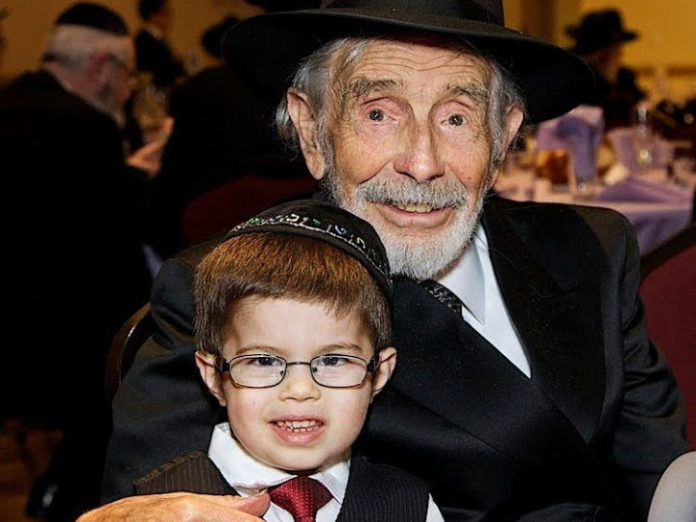This world became a poorer place on the 20th of Teves, when my beloved father-in-law, Yisrael Yitzchok Cohen of Toronto, was summoned to the next one.
Poorer not only because he was a talmid chacham, a Gerrer chasid who was close to the Bais Yisrael and subsequent Rebbes, and a true gentleman, but because he was one of the increasingly rare links to pre-Holocaust Jewish Europe.
Born in Łodz close to a century ago, my shver studied in the Gerrer cheder in that Polish city and was taught as well by his grandfather in a nearby town. He spent the war years in Auschwitz and Kaufering (a satellite camp of Dachau), and after the liberation, he taught war orphans in Aix-les-Bains, France. In Switzerland he met his eishes chayil, l’havdil bein chaim l’chaim, Perle (née Sternberg/Lablanc), who makes every mother-in-law joke incomprehensible to me.
He was a mechanech par excellence. After his petirah, a letter from Rabbi Joseph Kamenetsky of Torah Umesorah was discovered among his things. It was an invitation sent from New York to Switzerland in 1950, offering him an expenses-paid trip to a chinuch conference to share his experiences teaching young orphans. His reputation had apparently spread across the ocean from Switzerland to the US.
Characteristically, he had never mentioned the invitation (or trip, if he took it). He was not only a great mechanech but a modest man. Although he possessed more Torah knowledge than many knowledgeable rabbis, he always insisted on being called “Mr. Cohen.”
And he possessed something I particularly cherish, a well-honed sense of humor. As he grew older, for example, he told me that he had become an avodah zarah, an idol. My puzzled look elicited his explanation: “Einayim lahem v’lo yir’u…they have eyes but do not see; they have ears but do not hear…” (Tehillim, 135:16-17).
And he was a baal dikduk, an expert in Hebrew grammar, and a baal korei without peer. Not to mention a top-notch baal tokei’a, even into his 90s.
His emunah in Hashem and acceptance of His will, despite all the death and destruction he witnessed and all that he suffered, were powerful forces that were abundantly evident in his published Holocaust account Destined to Survive (ArtScroll, 2001). The late novelist Herman Wouk got to know my shver and even contributed an introduction to his book. In that foreword, Mr. Wouk wrote that the author’s recollections are “outstanding for vividness—and most strangely, optimism.”
“He was a lad of eighteen,” the celebrated author of The Winds of War and War and Remembrance noted, “a pious Gerrer Hassid, when he was swept into the maelstrom. He came out of it scarred in body and soul, yet still a pious Jew with undimmed faith in the Maker.”
Most of all, though, my shver was a makir tov to Hashem for all he came to have after emerging from the concentration camps emaciated, bereaved and penniless.
At family simchahs, where he was surrounded by his progeny, he would look around at his daughters and sons and their spouses, and survey the lush and lively background of grandchildren and great-grandchildren of varied ages, bli ayin hara, all following in the proud Jewish footsteps he and his wife had laid down over the years, and he would quietly say words borrowed from Yeshayahu (49:21): “Mi yalad li es eileh? Who bore me these? V’eileh mi gideil? And these, who raised them? Hein ani nisharti l’vadi, eileh eifo heim? Behold, I languished alone; where did these come from [lit. where are these]?”
“I can’t believe,” he explained to some of us within earshot on one such occasion, “that after hiding in a pile of corpses in a burning concentration camp, starved and sick, I have been zocheh to all that I have today.”
Most of us, certainly I, have lived lives of incredible luxury compared to the lives of my shver and his European contemporaries. But his hakaras hatov—his true recognition of the good that Hashem bestows —is something from which all of us can learn.
No matter how deprived we might occasionally delude ourselves into thinking we are, we are all beneficiaries of indescribable riches. None of us, most likely, have had to hide in a pile of corpses to escape death. And if we look around with truly open eyes, we certainly can see abundant blessings. That vision is part of his legacy to me, and now to you.





















